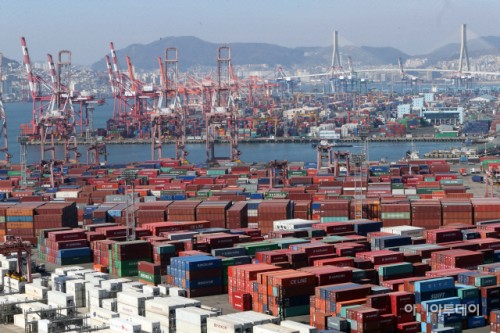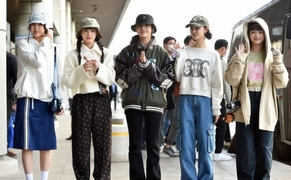 |
| Source: Yonhap News |
AsiaToday reporter Jo Jae-hak
The South Korean government on Tuesday said it will resume a complaint at the World Trade Organization (WTO) over Japan’s export curbs. The move came after the Japanese government did not show willingness to settle the dispute and no progress were made.
“We have decided to resume dispute settlement proceedings at the World Trade Organization over Japan’s export control measures on three items that had been tentatively halted on November 22,” said Na Seung-sik, deputy minister for trade and investment, during a briefing. “In order to do so, we will request the WTO to set up a panel charged with the effort.”
“We have reached the conclusion that we cannot proceed with normal dialogue (with Japan), which was the premise of suspending the complaint at the WTO,” Na said.
Last month, the trade ministry requested Japan to make its position clear on its export regulation on three items and its decision to remove South Korea from its whitelist of reliable trade partners by the end of that month. Despite repeated requests, Japan did not give a clear response by the Sunday deadline. “We have received a response from Japan (over last month’s request), but it did not meet expectations,” Na said.
In July last year, Japan strengthened restrictions on exports of the three key industrial materials that are critical for chip and display industries, namely photoresists, etching gas and fluorinated polyimide, citing Korea’s insufficient export control system, including catch-all controls on conventional weapons, breach of trust between the two countries and national security concerns. Seoul has pointed out that all the issues raised by Tokyo have been resolved and there is no justification for maintaining measures to strengthen export regulations.
In order to further clarity the legal basis for catch-all control on conventional weapons, the South Korean trade ministry completed the revision of the Foreign Trade Law back in March. In addition, the ministry expanded and reorganized its trade security department into the trade security policy bureau.
Contrary to Japan’s allegations, there have been no security-related problems reported from the three items over the past 11 months.
Na stressed that the current situation needs problem solving rather than dialogue itself. “We will continue dialogue with Tokyo. (But) the more important thing is the willingness to solve the problem. (Now) is the time to make a decision,” he said.
Seoul expects the resumption of the WTO complaint will prove the illegality of Japan’s export curbs and prevent similar measures in advance.
“Through the WTO complaint, we will prove the unlawfulness and unjustness of Japan’s actions on three items,” Na said. “We will focus our efforts to protect South Korean companies’ legitimate profits and stave off the uncertainties over the global supply chain for companies for both nations.”
#WTO complaint #Japan #export curbs #South Korea
Copyright by Asiatoday
Most Read
-
1
-
2
-
3
-
4
-
5
-
6
-
7





















